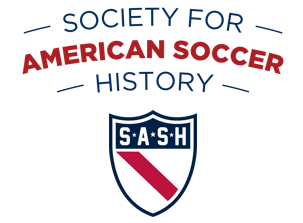A midfielder regarded as the most skilled American player of the 1990s, and perhaps of all time. He was one of only three Americans to appear in the 1990, 1994 and 1998 World Cups, starting all seven U.S. games in 1990 and 1994.
Ramos learned his first soccer moves in Uruguay, from which his family moved to the soccer hotbed of Kearny-Harrison, N.J., when he was 10 years old. He broke into the full national team in 1988 when he was 21, and became a regular starter in 1989, as a replacement for Ricky Davis, who was out with a knee injury that ended his career. Ramos had knee troubles of his own later in his career. He tore an ACL in a World Cup qualifier against Trinidad in November 1996 and tore the same ligament again during a national-team practice in October 1997. That second tear played a part in limiting his role in the 1998 World Cup.
Neither of the ligament tears was Ramos’ most famous injury. That came at the 1994 World Cup, when Leonardo of Brazil swung an elbow that fractured the side of Ramos’ skull. He came back from that injury, but eventually the knee injuries slowed him down.. He did, however, make a crucial contribution to the United States’ effort in qualifying for the 1998 World Cup, scoring a stunning winning goal against Costa Rica in September 1997.
In addition to his dazzling ball skills, Ramos was among the United States’ most combative players in his era, once even engaging in an on-the-field fight with longtime friend John Harkes. His 81 caps and eight full-international goals don’t fully reflect his importance to the national team. He missed a lot of internationals in the early 1990s because he was playing professionally in Spain. And he more often was the man who assisted on goals rather than the one who scored them.
After the 1990 World Cup, Ramos signed with Figueras in the Spanish second division. He played two seasons there and then two more with Real Betis, also in the second division. In January 1995, he became the first player to sign with MLS, and was loaned to Nuevo Leon of the Mexican first division until the start of MLS play in the spring of 1996. He played for the MetroStars in each of the first four MLS seasons.
Inducted in 2005.
